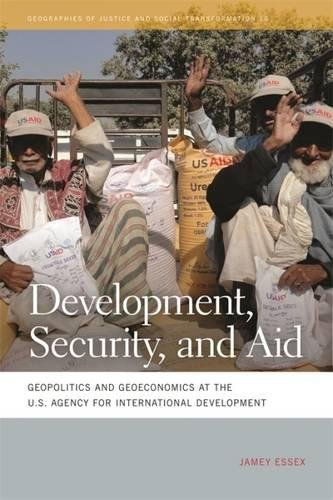

Most ebook files are in PDF format, so you can easily read them using various software such as Foxit Reader or directly on the Google Chrome browser.
Some ebook files are released by publishers in other formats such as .awz, .mobi, .epub, .fb2, etc. You may need to install specific software to read these formats on mobile/PC, such as Calibre.
Please read the tutorial at this link: https://ebookbell.com/faq
We offer FREE conversion to the popular formats you request; however, this may take some time. Therefore, right after payment, please email us, and we will try to provide the service as quickly as possible.
For some exceptional file formats or broken links (if any), please refrain from opening any disputes. Instead, email us first, and we will try to assist within a maximum of 6 hours.
EbookBell Team

4.7
36 reviewsIn Development, Security, and Aid Jamey Essex offers a sophisticated study of the U.S. Agency for International Development (USAID), examining the separate but intertwined discourses of geopolitics and geoeconomics.
Geopolitics concentrates on territory, borders, and strategic political and military positioning within the international state system. Geoeconomics emphasizes economic power, growth, and connectedness within a global, and supposedly borderless, system. Both discourses have strongly influenced the strategies of USAID and the views of American policy makers, bureaucrats, and business leaders toward international development. Providing a unique geographical analysis of American development policy, Essex details USAID's establishment in 1961 and traces the agency's growth from the Cold War into an era of neoliberal globalization up to and beyond 9/11, the global war on terror, and the looming age of austerity.
USAID promotes improvement for millions by providing emergency assistance and support for long-term economic and social development. Yet the agency's humanitarian efforts are strongly influenced, and often trumped, by its mandate to advance American foreign policies. As a site of, a strategy for, and an agent in the making of geopolitics and geoeconomics, USAID, Essex argues, has often struggled to reconcile its many institutional mandates and objectives. The agency has always occupied a precarious political position, one that is increasingly marked by the strong influence of military, corporate, and foreign-policy institutions in American development strategy.